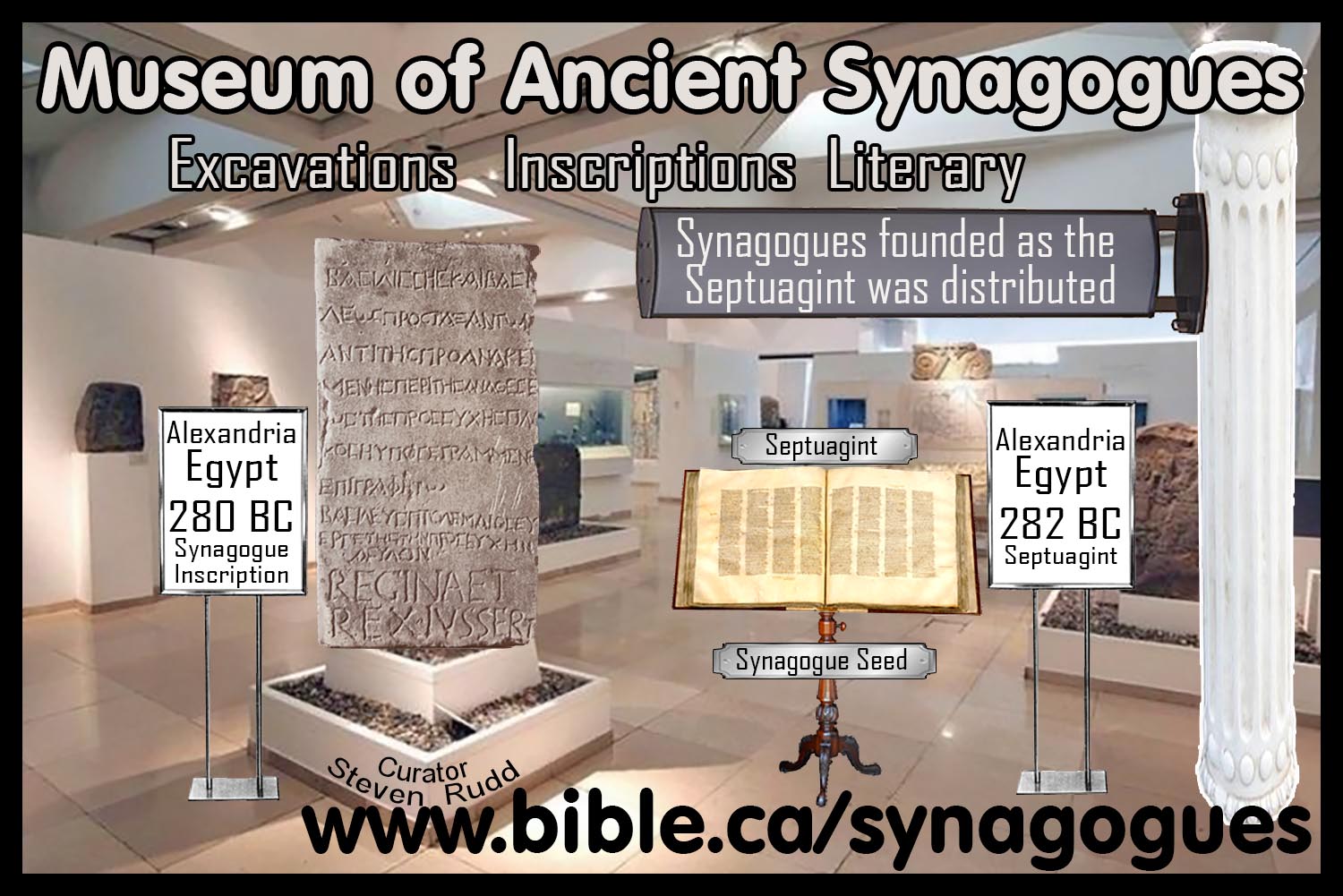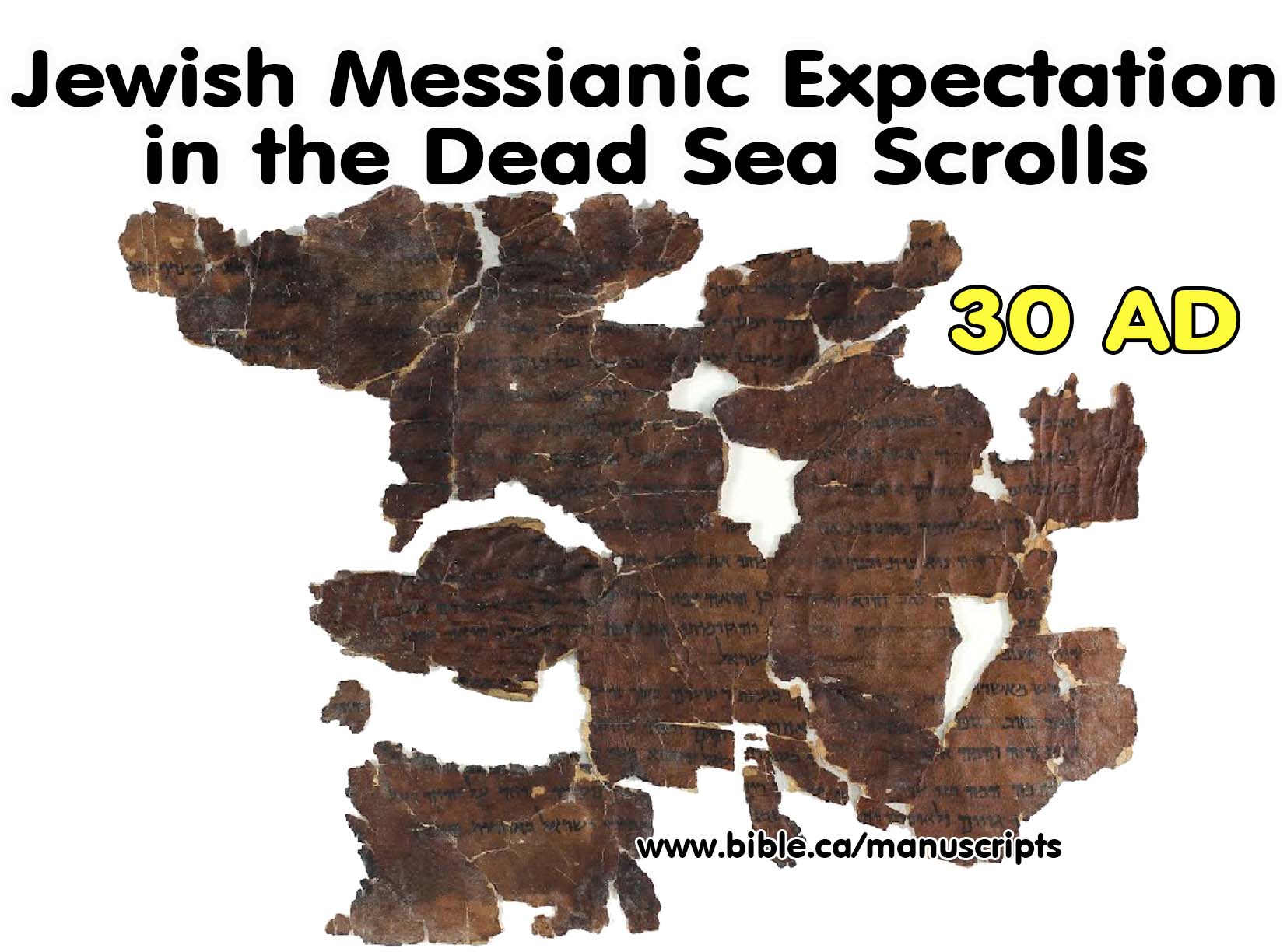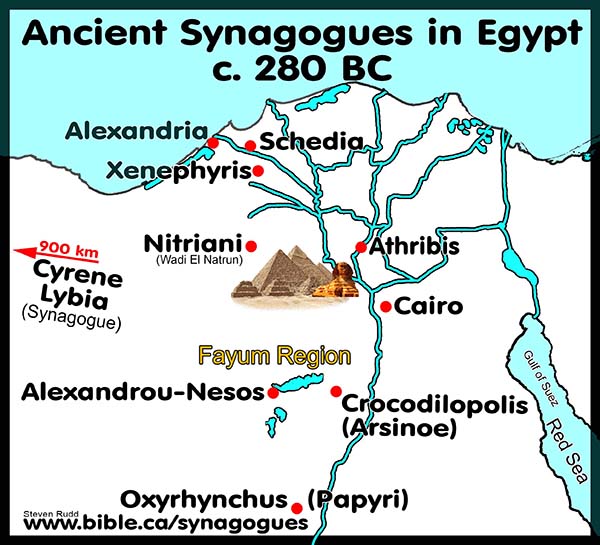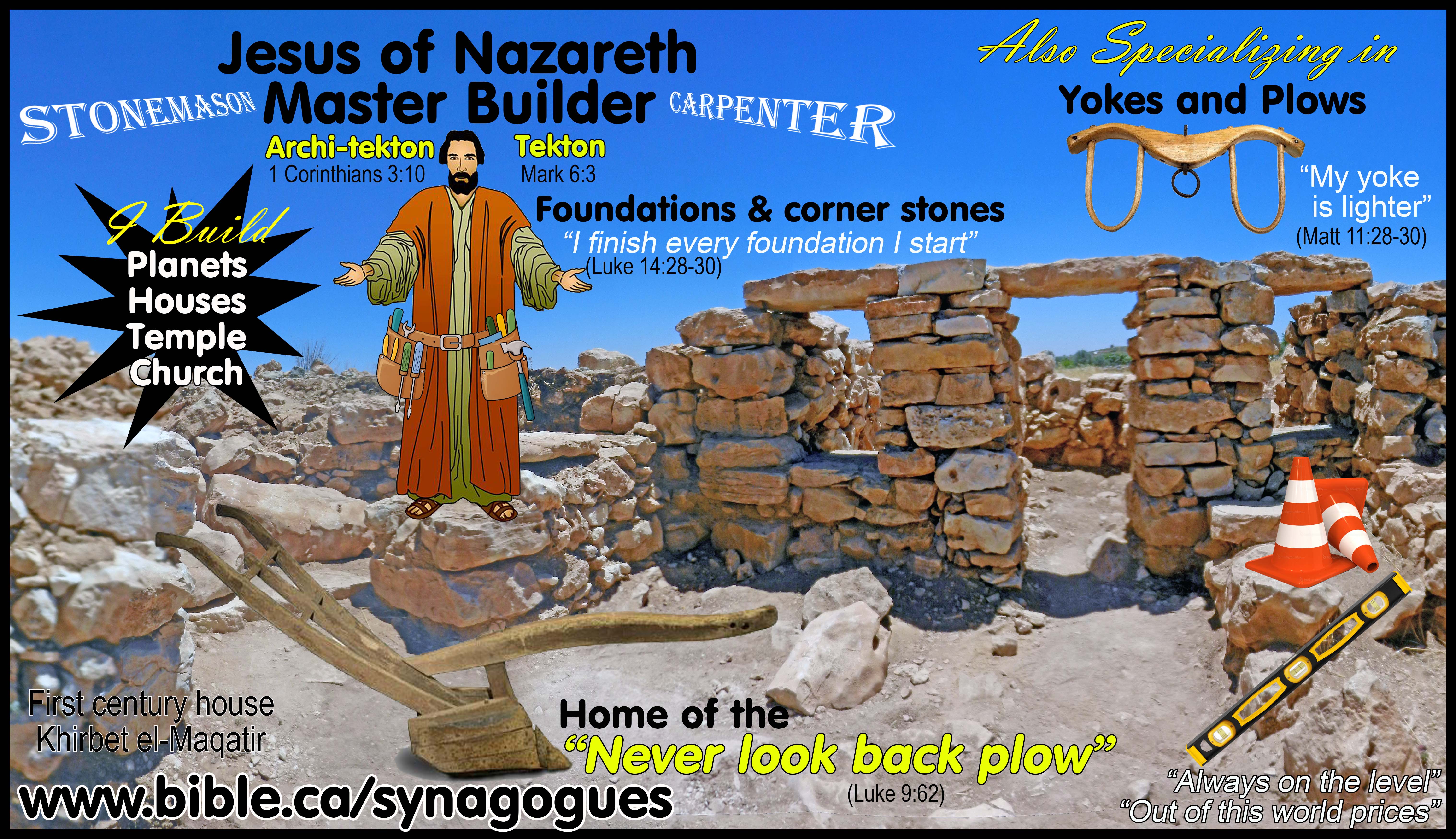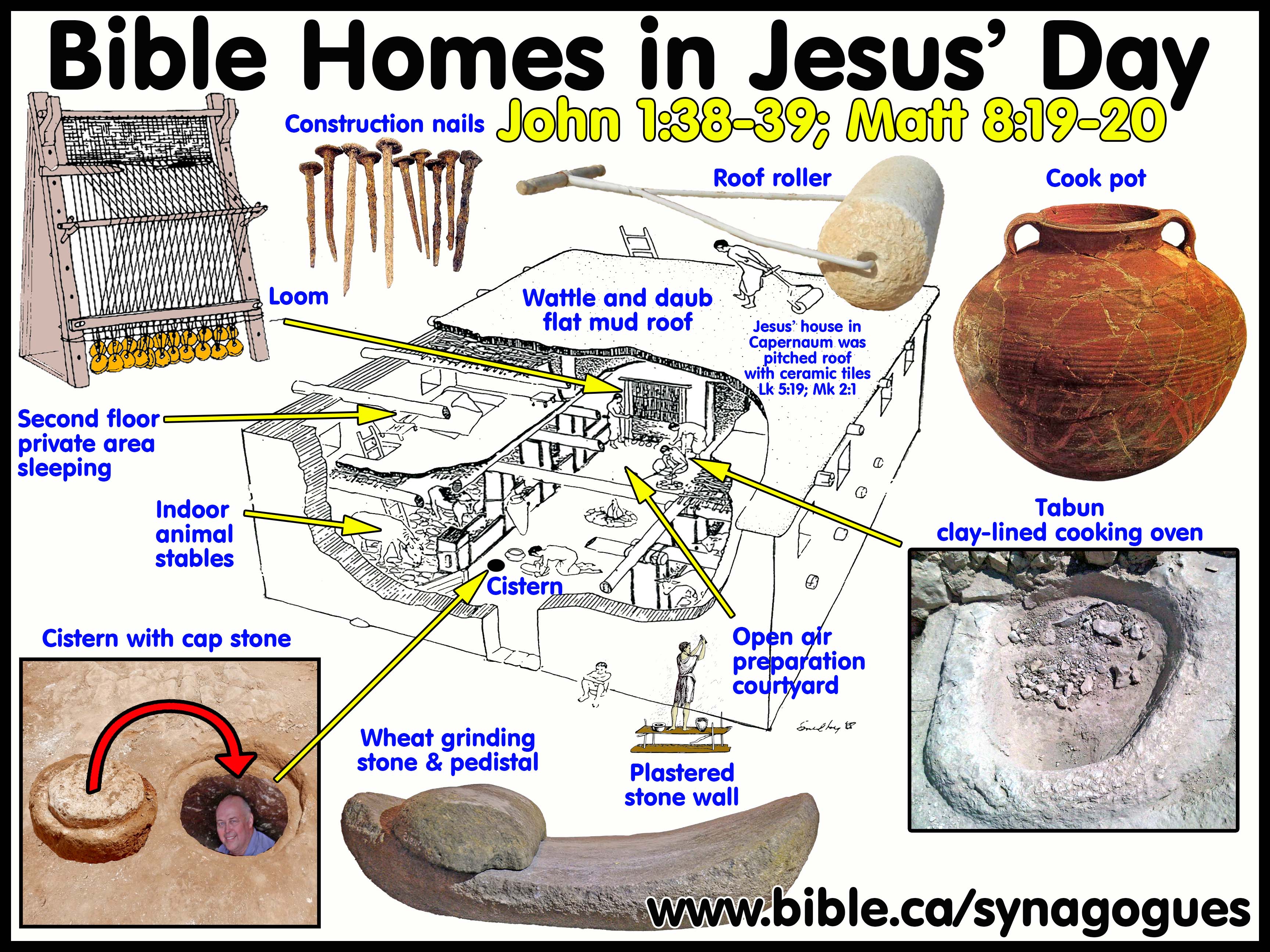“On this Rock, I will build My church”
Ancient Synagogue Worship and the Church
Synagogue worship was the prototype for Christian Church.
|
WEEKLY SABBATH ASSEMBLIES IN SYNAGOGUES |
A. Week assemblies are foreign to Mosaic Judaism and Temple worship:
1. Weekly assemblies are 100% foreign to Mosaic Judaism and Temple worship!
a. The importance of this observation cannot be under emphasized.
b. There is no direct Bible authority for weekly assemblies in Synagogues for Jews.
c. Weekly attendance for Jewish synagogues on the Sabbath was an innovation.
d. Weekly attendance for Christians on the first day was the result of Biblical legislation: Acts 20:7; 1 Cor 16:1-2
2. Mosaic Judaism and Temple worship required three annual pilgrimages to the tabernacle tent or temple:
a. "“Three times in a year all your males shall appear before the Lord your God in the place which He chooses, at the Feast of Unleavened Bread and at the Feast of Weeks and at the Feast of Booths, and they shall not appear before the Lord empty-handed." (Deuteronomy 16:16)
b. From 1446 – 1400 BC the Jews were required to make 3 yearly pilgrimages to Gilgal
c. From 1399 – 1094 BC the Jews were required to make 3 yearly pilgrimages to Shiloh
d. From 1094 – 1018 BC the Jews were required to make three yearly pilgrimages to Nob
e. From 1018 – 966 BC the Jews were required to make 3 yearly pilgrimages to Gibeon
f. From 966 BC – 3rd April 33 AD the Jews were required to make three yearly pilgrimages to Jerusalem
g. Temple worship abolished: When Christ died on the cross he abolished the Law of Moses and temple worship: Col 2:14-17
h. Jerusalem Temple replaced by the body of Christ: "The Jews then said to Him, “What sign do You show us as your authority for doing these things?” Jesus answered them, “Destroy this temple, and in three days I will raise it up.” The Jews then said, “It took forty-six years to build this temple, and will You raise it up in three days?” But He was speaking of the temple of His body." (John 2:18–21)
3. Jews gathered every Sabbath day to a synagogue building for worship, prayer, Bible reading, singing and freewill contributions:
a. "For Moses from ancient generations has in every city those who preach him, since he is read in the synagogues [Synagōgē] every Sabbath.”" (Acts 15:21)
b. 31 BC: “Therefore, he knew that they had synagogues [proseuche], and that they were in the habit of visiting them, and most especially on the sacred sabbath days, when they publicly cultivate their national philosophy. He knew also that they were in the habit of contributing sacred sums of money from their first fruits and sending them to Jerusalem by the hands of those who were to conduct the sacrifices.” (Philo, Embassy 156, 31 BC)
c. “nor do we conceal those injunctions of ours by which we govern our lives, they being memorials of piety, and of a friendly conversation among men. And the seventh day we set apart from labor; it is dedicated to the learning of our customs and laws, we thinking it proper to reflect on them as well as on any [good] thing else, in order to our avoiding of sin.” (Josephus, Antiquities 16.43)
d. “And said R. Eleazar, “They may pledge charity for the poor on the Sabbath.” And said R. Jacob said R. Yohanan, “They may go to synagogues and study houses to supervise public business on the Sabbath.” (Babylonian Talmud, Ketubot 5A:E-F)
B. Jewish converts to Christianity continued weekly assemblies on the “Lord’s Day” (1st day = Sunday)
1. Weekly attendance is the “litmus test” of salvation:
a. Weekly attendance with other Christians to partake of the Lord’s supper, sing, pray, read scripture and make freewill offerings is the great separator on Judgement day between the lost and the saved.
b. It boils down to commitment or quoting Jesus: “If you love Me, keep my commandments”.
c. Now the spiritual cream of the crop don’t argue about the fact that Jesus never specifically commanded weekly attendance on Sunday, they just show up because that is where they WANT TO BE.
2. Weekly attendance is mandatory for a Christian:
a. "and let us consider how to stimulate one another to love and good deeds, not forsaking our own assembling together, as is the habit of some, but encouraging one another; and all the more as you see the day drawing near." (Hebrews 10:24–25)
b. Weekly communion: "On the first day of the week, when we were gathered together to break bread, Paul began talking to them, intending to leave the next day, and he prolonged his message until midnight." (Acts 20:7)
c. Weekly freewill offerings: "Now concerning the collection for the saints, as I directed the churches of Galatia, so do you also. On the first day of every week each one of you is to put aside and save, as he may prosper, so that no collections be made when I come." (1 Corinthians 16:1–2)
d. Sabbath day abolished: "having canceled out the certificate of debt consisting of decrees against us, which was hostile to us; and He has taken it out of the way, having nailed it [the Law of Moses] to the cross. When He had disarmed the rulers and authorities, He made a public display of them, having triumphed over them through Him. Therefore no one is to act as your judge in regard to food or drink or in respect to a festival or a new moon or a Sabbath day— things which are a mere shadow of what is to come; but the substance belongs to Christ." (Colossians 2:14–17)
3. Transition from annual Temple worship to weekly attendance:
a. The church was the eternal purpose of God from before the foundation of the world: Ephesians 3:9-11
b. The church was the end game that God foresaw in the Garden of Eden when it was prophesied that the Jesus would destroy the Devil with the cross: "Therefore, since the children share in flesh and blood, He Himself likewise also partook of the same, that through death He might render powerless him who had the power of death, that is, the devil," (Hebrews 2:14)
c. God in His providence foresaw the need to upgrade the commitment level of his people from three times to 52 times yearly.
d. The rise of Synagogue worship, therefore was God’s providential preparation to have the Jews already in the habit of worshipping on a weekly frequency.
4. Jesus began the pattern and habit of meeting on the first day by appearing only on Sundays to his disciples
a. When Jesus rose from the Dead on Sunday, it became the day known as THE LORD’S DAY and Christians began meeting on the first day.
b. Jesus appeared on Sunday, the day he roses from the dead: Jn 20:19
c. Jesus appeared to the disciplines the very next Sunday: Jn 20:26
d. Jesus told the displaces to wait in Jerusalem on Pentecost Sunday the day the church was born: Acts 2:1
5. While the Sabbath was significant to the Jews, there is no New Testament significance of the Sabbath in connection with anything of Christ, Christianity, the church or heaven!
C. 21 reasons why weekly attendance on the first day of the week, Sunday is important to Christians.
1. Jesus rose on the first day of the week not the Sabbath: Mk 16:9
2. All 6 appearances of Jesus happen on two Sundays, none on Sabbath. Mk 16:9; Mt 28:5-9; Lk 24:34; Lk 24:13-15; Lk 24:33,36 + Jn 20:19; Jn 20:26
3. Christians are recorded assembling three times on Sunday after resurrection and before ascension, never on the Sabbath. Jn 20:19 Jn 20:26 Acts 2:1 (We do not claim that these were worship services, just the early starting point of Sunday gatherings)
4. The only time Christians are recorded to have assembled together was on a Sunday in Acts 20:7, never does it say the disciples assembled on the Sabbath.
5. The only day ever mentioned when Christians broke bread was on Sunday: Acts 20:7
6. Christians are commanded every Sunday to give into a common treasury of the church: 1 Cor 16:1-2
7. Jesus was declared the Son of God on Sunday: Rom 1:4
8. Ps 2:7 "Today I have begotten thee" was fulfilled on Sunday when he rose: Acts 13:33
9. The sign that Jesus was glorified was given on Sunday: Jn 7:39 + Acts 2:1,32
10. The church officially began on Pentecost Sunday: Acts 2:1
11. Jesus was crowned king on a Sunday: Acts 2:33-36
12. The disciples reception of the promise of the Father on Sunday: Acts 1:4-5; 2:1-4
13. The Holy Spirit first fell upon the apostles on a Sunday: Acts 2:1-4
14. Salvation first preached by Peter on Sunday: Mt 16:19; Acts 2:1,38,40-41
15. The Keys to the Kingdom of God were first used on Sunday: Mt 16:19
16. The great "Triumphal entry" (also called "Palm Sunday") happened on the first day: Luke 13:32
17. The time between the Lord's resurrection (sheaf waving day) and Pentecost was Sunday to Sunday counting of 50 days. The starting and stopping time was on the 1st day.
18. First time Jesus worshiped after resurrection was on the first day by Thomas (Jn. 20:26).
19. The first time we could be born again to a living hope was on a Sunday: 1 Pet. 1:3
20. The first time Jesus had communion after his resurrection with His disciples, was on a Sunday: (Lk. 24:1, 13, 28-35)
21. Pentecost was a Sabbath - Sunday duration of 50 days (49 actual days, 50 using Jewish inclusive counting).
See also: Christian Sabbath Keepers Refuted
By Steve Rudd 2017: Contact the author for comments, input or corrections
|
Jesus your messiah is waiting for you to come home! |
|
|
Why not worship with a first century New Testament church near you, that has the same look and feel as the Jewish Synagogue in your own home town. As a Jew, you will find the transition as easy today as it was for the tens of thousands of your forefathers living in Jerusalem 2000 years ago when they believed in Jesus the Nazarene (the branch) as their messiah. It’s time to come home! |
|
By Steve Rudd: Contact the author for comments, input or corrections.
Go to: Main Ancient Synagogue Start Page


